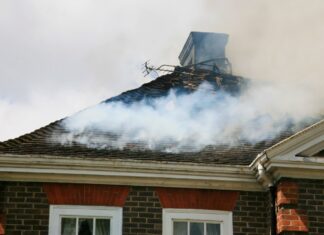
Although temperatures might seem to be going down, there are possibilities temperatures in New Jersey could rise again, and with that, there are still heat-related health risks even at temperatures in the 80s.
Burlington County has provided some tips to help people stay cool and what to look for if someone is suspected of having a heat-related illness.
“With rising temperatures, it is important to drink more fluids, but to avoid alcohol and high sugar drinks,” said Burlington County Freeholder Mary Ann O’Brien. “Residents that plan to go outside should wear loose, lightweight clothing and never leave any persons, especially infants or young children, or animals in a closed, parked vehicle.”
The combination of hot temperatures and high humidity creates a dangerous situation in which heat-related illnesses are likely. Drink plenty of water to prevent dehydration and heat stroke, Tabernacle Rescue Squad shared on a Facebook post.
“Keeping cool will help you and your loved ones avoid heat-related illnesses,” O’Brien said.
Heat-related illnesses include heat stroke, heat exhaustion and heat syncope. According to the Burlington County Public Health Fact Sheet on heat-related illnesses, the body normally cools itself by sweating, but under some conditions, sweating just isn’t enough. In such cases, a person’s body temperature rises fast. Very high body temperatures may damage the brain or other organs. Several things affect the body’s ability to cool itself during hot weather. When the humidity is high, sweat will not evaporate as quickly, preventing the body from releasing heat.
For each heat-related illness, move the person to a cool area and try to lower his or her body temperature as quickly as possible. In the case of heat stroke, seek medical attention immediately, as heat stroke can cause death.
Some general tips for preventing heat-related illnesses include: drink plenty of fluids; avoid alcohol and caffeine, and see your doctor about whether you need additional salt; spend whatever time possible in air-conditioned areas, even if only a few hours each day; make sure to eat enough food; when possible, lower activity levels in very hot weather; because the elderly are particularly at risk to the effects of heat, caretakers should visit at least twice a day and monitor them closely for signs of heat illness; because young children under 5 years of age are also sensitive to heat’s effects, parents and caretakers should be careful not to overdress them and to give them plenty of fluids; wear a hat when outdoors; exercise early or late in the day; make sure to check on pets as the heat can affect some pets, ask your veterinarian for advice; and, in cases of heat emergencies, call your doctor or visit your local emergency room.
Citizens are also reminded not to leave people or pets in a parked car, even if the windows are open. When temperatures outside range from 80 degrees to 100 degrees, the temperature inside a car parked in direct sunlight can quickly climb to between 130 degrees to 172 degrees, according to the Centers for Disease Control and Prevention. The temperature inside a closed car rises most quickly during the first 15 minutes that it is left in the sun, according to the CDC.
Burlington County has cooling centers for those who don’t have access to air-conditioned environments. Cooling centers nearby are the Pemberton Library in Browns Mills, the Pinelands Library in Medford, and 94 Main St. in Vincentown. For a complete list, visit the Burlington County website at www.co.burlington.nj.us.
“The county provides residents who do not have air conditioning with the option of utilizing our cooling sites located throughout the county,” O’Brien said.
For more information, contact the Burlington County Health Department at (609) 265–5548 or visit CDC.gov/extremeheat.









